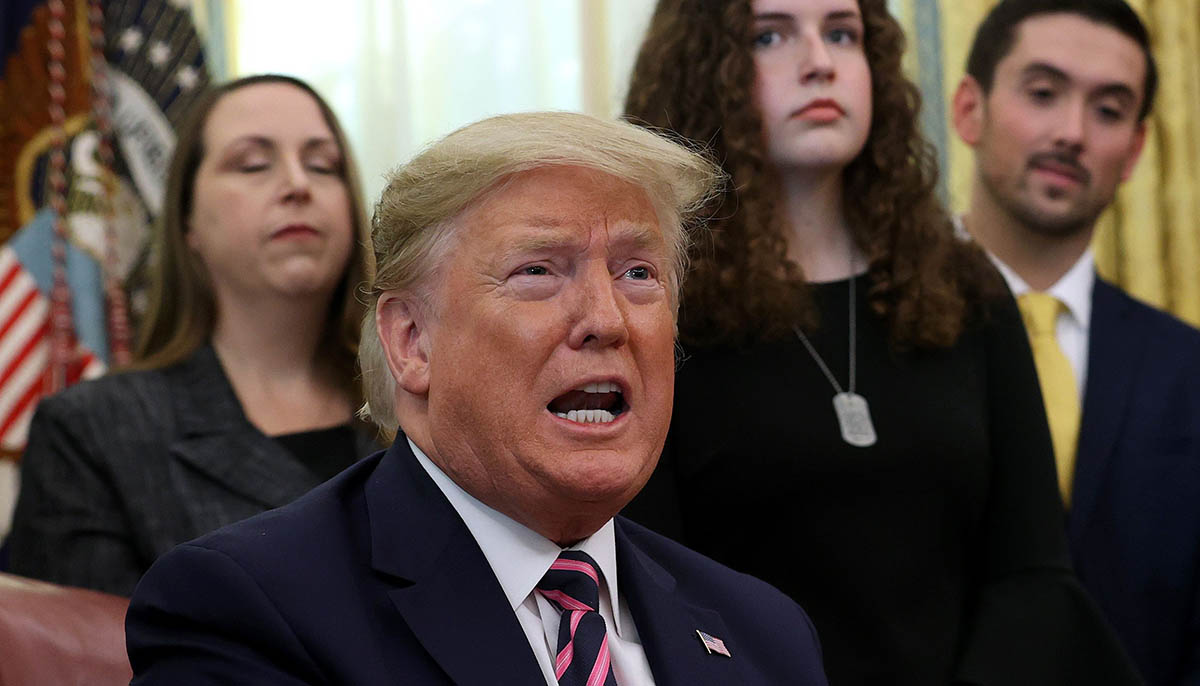Shutterstock
The impeachment trial of President Donald Trump starts today, where senators are expected to vote on a resolution that will set the rules for the trial.
This is expected to last into the middle of the night, as the plan that Majority Leader Mitch McConnell revealed yesterday will force impeachment managers to deliver their case in two 12-hour sessions.

Democratic aides believe the shortened timeline is an effort to “conceal the President’s misconduct in the dark of the night.”
The managers have gone on record to say, “There should be a fair trial—fair to the President, yes, but equally important, fair to the American people. Any Senator who wants the same should reject the McConnell Resolution.”
“His resolution deviates sharply from the Clinton precedent,” they added.
Related: Trump Breaks Down as Impeachment Vote Approaches
Although until the vote on the resolution may still take a while, there are still a few givens that can be expected throughout the trial.
Late nights are to be expected—Mitch McConnell has made it clear that he wants to get this trial done as quickly as possible. Each side would get only 24 hours to make their case, and they may very well take advantage of all of the time allowed.
The trial may go very quickly—President Donald Trump has expressed that he’d like the trial to be completed before February 4, when he is scheduled to deliver the State of the Union address.
Change is expected—although a basic outline exists of how the trial might be expected to go, the debate on Tuesday between the defense team and the House managers is what will ultimately guide the entire process.
Related: Trump to Resign to Avoid Impeachment, According to Trump Executive
There is sure to be fighting—it is well known that Democrats want witnesses at the impeachment trial, while Republicans do not agree that they’re necessary. Only four Republicans are needed in order for Democrats to have a majority in this decision.
The media will be limited—since the Senate is in control of the cameras inside of the chamber, they will be able to determine what angles the cameras will be placed at. This can mean only the person speaking might be shown, and reporters have noted that parts of the building that are typically open to them have now been shut.
What the public will have access to will also be limited—closed sessions are expected because the Senate will need to debate at times, but they aren’t allowed to speak during the trial. This is one of many rules that apply, such as being required to stand when they vote and not being allowed to use their phones.